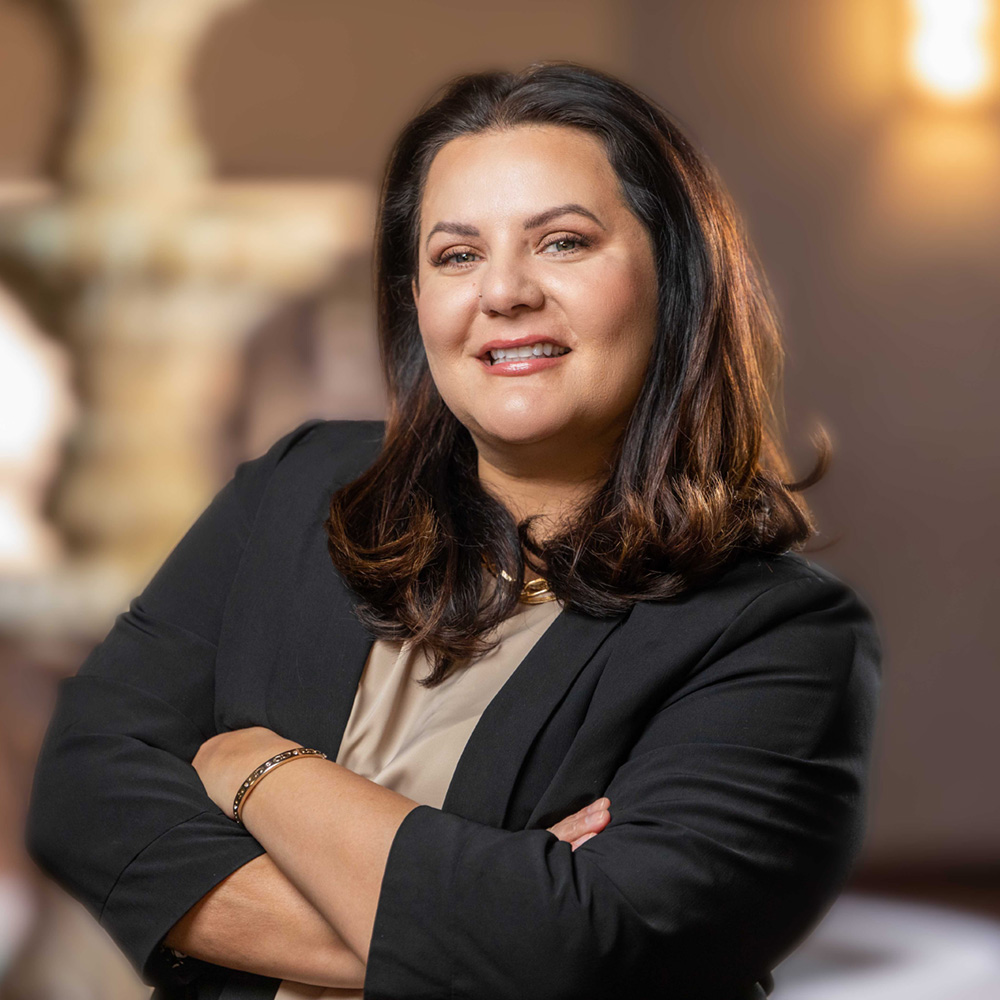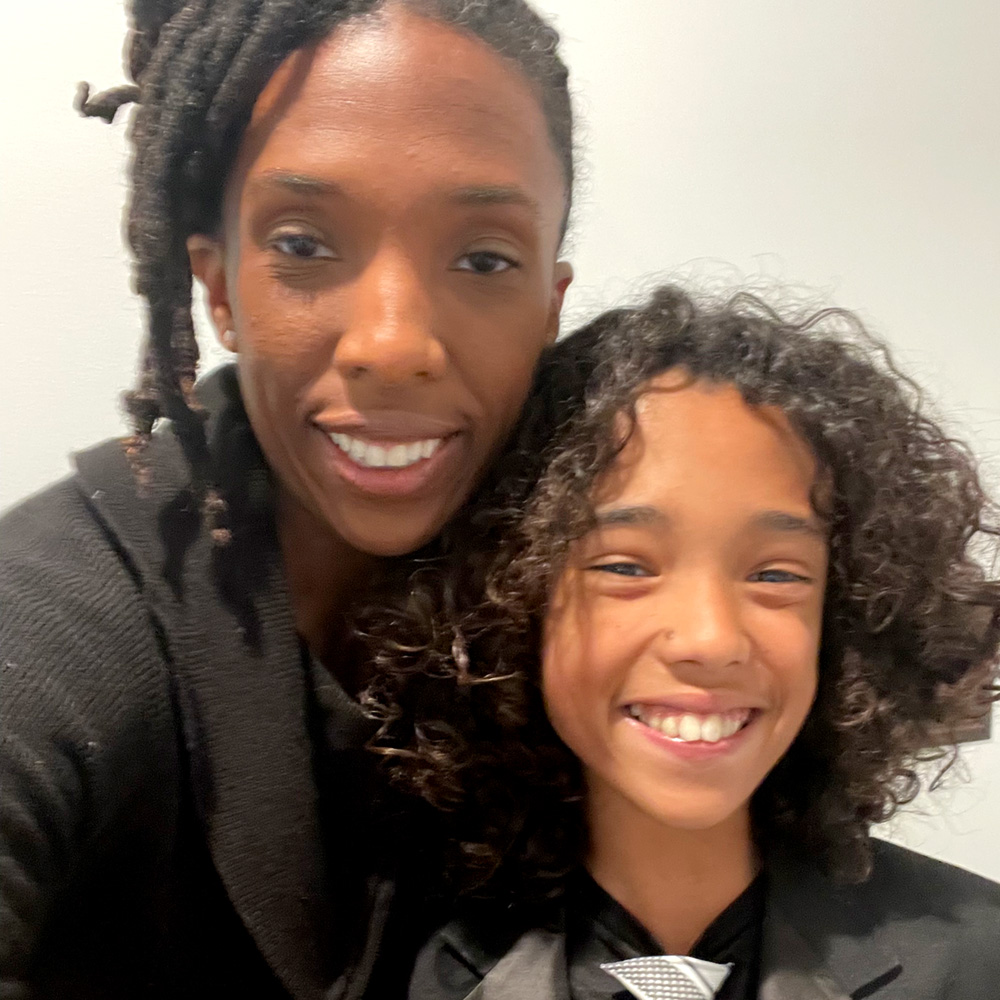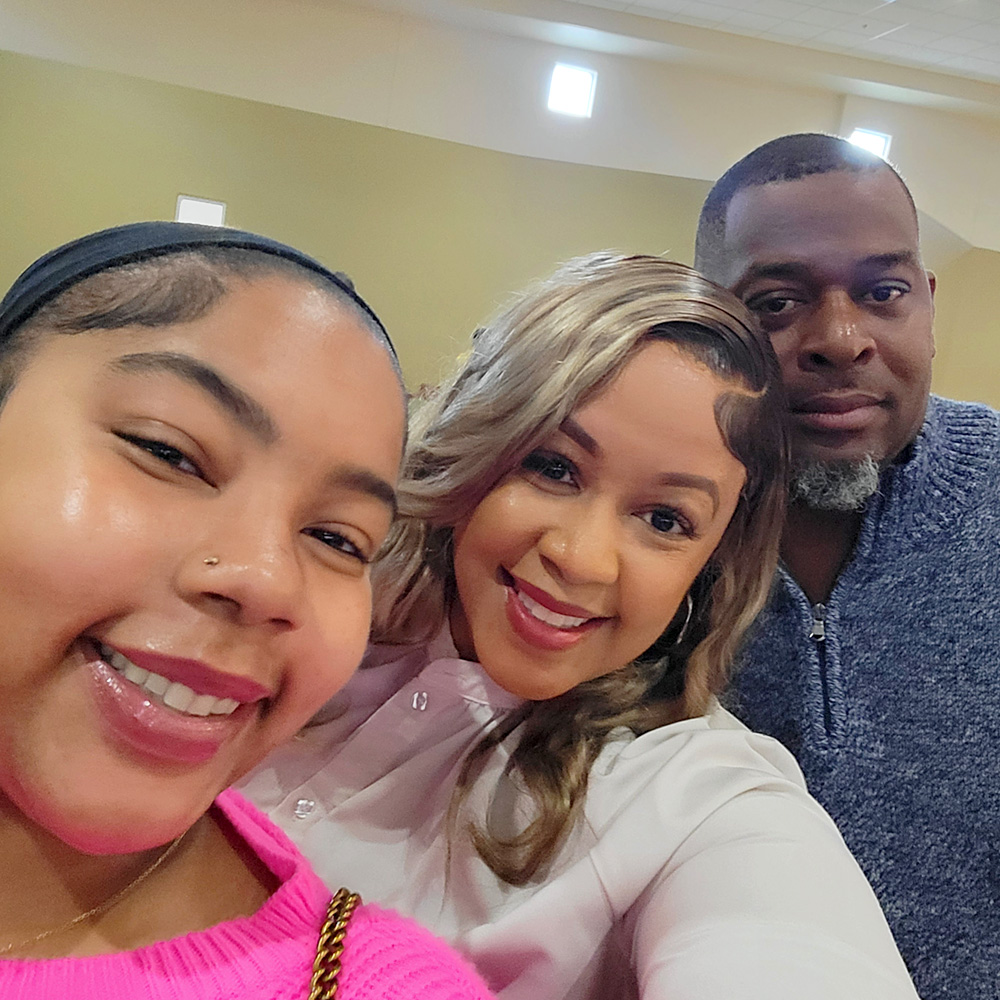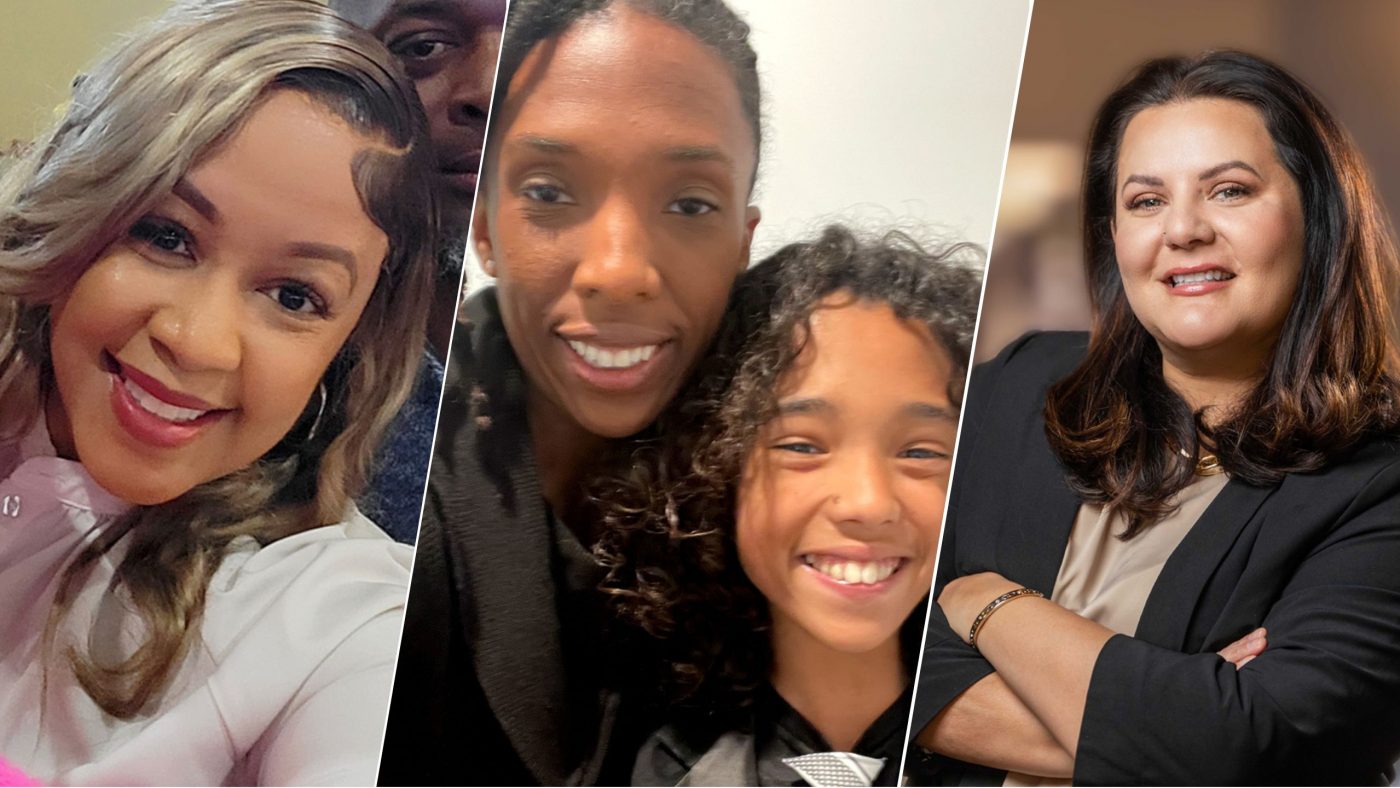Marquita Little Numan took the helm of Partnership for America’s Children last August, just a few weeks before the Executive Directors Retreat of this national network of child advocacy organizations. In leading the planning process for its nationwide strategy to support advocates working to advance a whole-child agenda, she was struck by the commitment and drive of the state leaders, and also by the energy in the room. There was something different about it—something millennial.
“The leaders in our network are one of the reasons I’m optimistic about the future we’re helping to create for children,” she says. “They are updating their playbooks to respond to new, unique challenges.” The Partnership is strategizing how best to empower these leaders, especially new leaders joining the network, as they navigate the aftermath of a pandemic and the complexities of today’s politically polarized landscape to improve policies affecting children.
Numan adds, “Many long-time leaders have retired and transitioned to other roles, and incoming leaders have more diverse identities and backgrounds.” She shared excitement about the diversity of the new generation of leaders but acknowledges that the nature of advocacy has also changed.
👉Hot Topics in Child Advocacy (The Partnership’s 2024 Legislative Agenda)
To help Early Learning Nation magazine sample the flavor of this leadership style, Numan introduced Keesa Smith, executive director of the Arkansas Advocates for Children and Families; Holly Welborn, executive director of Children’s Advocacy Alliance; and Paige Clausius-Parks, executive director of Rhode Island KIDS COUNT. All three are in their early 40s, relatively new to their positions and serve on the Partnership’s board of directors.
Here are 5 aspects of the way this generation pushes for state and local policy change.
Recognizing the Urgency

James Baldwin said it best: “Nothing can be changed until it is faced.” A big part of advocacy is confronting the problems without blinking. Arkansas, for example, has one of the highest rates of food insecurity in the nation. Its maternal health record is abysmal, says Smith, and it is one of the only states that have failed to provide Medicaid coverage to moms for 12 months postpartum despite its progress as one of few Southern states to expand Medicaid to low-income adults nearly a decade ago. The state’s lack of public transportation, especially in rural areas, is a longstanding barrier between poverty and employment. And then there are controversies that arise out of nowhere. For example, the loosening of child labor laws in 2023 that were designed to protect minors from danger and exploitation in meat-processing plants. “We’re trying to not fight every battle,” she says, “but there are a lot of significant battles out here to fight.”
Nevada, says Welborn, is “struggling across the board. We have gone backwards in early care and learning.” Economic instability and lack of child care are persistent woes here, and it is the only state in the country that has “summary eviction,” meaning that landlords have no administrative requirements before posting a notice of eviction.
Rhode Island has a comparably favorable child-related policy environment, but it still has its challenges, says Clausius-Parks. “Economic constraints make it difficult for our state to commit to those long-term investments in early childhood development and learning.”
Remembering Race
Where past generations of leaders have been reluctant to acknowledge the role that race plays in child poverty and other seemingly intractable issues, younger leaders are more comfortable with these uncomfortable conversations.
As the Libra Foundation’s Crystal Hayling has stated, “I think this generation coming up is not asking. I think they’re telling. And they’re going to tell us the kind of society that they are going to build. And I think that, ultimately, is what community power is about.”

Clausius-Parks was a Public Service major and Black Studies minor in college. As she recalls, “We learned about community, service and philanthropy, and it really instilled in me the focus on seeing assets of a community versus seeing the deficits.” Taking part in the Partnership’s race equity board committee allowed her to advance equity in children’s policy. “I loved the questions that were being asked,” she says.
Citing the Annie E. Casey Foundation’s Race for Results report, Welborn sees “staggering and troubling data that show Black children are less likely to be set on a path for success.” The report ranked the well-being of Black children in Nevada 39th of the 46 states ranked, with an index score of 326, and Latino children ranked 41st out of 50.
Race isn’t an easy subject to broach in Arkansas, and Smith, who has extensive experience in state government, has grown accustomed to hearing policymakers dismiss poverty with unsubstantiated claims that poor people (without invoking race but strongly hinting) are lazy and want to live off the system. “There are still people who don’t realize that the system is what keeps people in poverty,” she notes. “If we want something different, we really have to do something different, but we are in an area of the country that tends not to do that.”
Among her mentors, she names Sherece Y. West-Scantlebury, president and CEO of the Winthrop Rockefeller Foundation, who is at the forefront of putting race on the table in Arkansas and who nominated her for the Aspen Ascend Fellowship.
Drawing upon Lived Experience
Ideals of professionalism are just as generational as those related to race. Where leaders in past eras were cautioned against bringing personal histories into the workplace, these days, hardships endured and obstacles overcome are seen as a superpower. (Read more.)
“I grew up in a household where we struggled to pay bills,” says Welborn. “Multiple families moved into one home in order to make ends meet, and that really shaped who I am and led directly to the way I advocate for young people who were struggling.”
When Smith was a senior in high school and a young mom, her 18-month-old baby passed away. The daughter she had in college is a senior in college today. “She has always directed my purpose,” Smith says. “I tell everyone that she is my number one motivator.”

Smith’s lived experience also includes law school and 17 years in state government, but she has never forgotten what public benefits like child care vouchers, housing assistance and Medicaid made possible for her.
Clausius-Parks has a master’s degree in education administration and social policy from Harvard University, but just as important was the experience of coming out as a student on a conservative Catholic campus. “There’s got to be more than me around here,” she remembers thinking. And sure enough, before too long, the LGBTQ+ society she founded grew. “That really fed my spirit for activism,” she says. Experience as the mother of a baby born prematurely and of being a stay-at-home mom for four years has similarly made her into the leader she is today.
Working in Coalition
Advocacy is a team sport. It’s never one fiery speech or a single coffee with an elected official that alters the policy landscape. Today’s leaders draw strength from each other and from the populations they serve. For Clausius-Parks, mentorship is a big part of sharing the cause. She makes a point of informally mentoring young leaders of color within and beyond her organization. “That’s part of our plan to make Rhode Island KIDS COUNT an organization that uplifts new policy leaders and, particularly, leaders of color. They are the change makers of the future—here, in other organizations and with other state and federal agencies.”
Welborn credits allies across the state for a breakthrough in 2017, when Nevada’s then-Governor Brian Sandoval became the first Republican governor to opt in to Medicaid expansion. The Children’s Advocacy Alliance is a lead partner of the Strong Start alliance, which joins forces with University of Nevada Las Vegas, United Way, the Urban League and others to advance policy issues related to health, early learning and the early childhood workforce.
Smith cites Numan and the Partnership for bringing her into a community of progressive leaders in conservative states. “In Idaho,” she says, “they are attacking vaccines. I have a pretty consistent conversation with my counterparts in Tennessee about school vouchers.”
This network prepares her for dialogue with legislators who tell her things like You want everybody on Medicaid. “I was able to respond, ‘Well, it may shock you to know that I would love it if no Arkansans were on Medicaid, but to do so would mean that all Arkansans were paid a living wage and wouldn’t qualify,’” she says.
Combining Statistics and Stories
Today’s advocates find themselves across the table with a range of decision makers. Some are ideological adversaries, and some sympathize with their cause but can’t find any more room in the budget. Time and again, these advocates have found paths to compromise and investment. Often, part of the successful formula includes an irresistible blend of hard data and emotional accounts of real-life families.
Smith often reminds Arkansas policymakers of the days when the state invested heavily in early learning. “We’re still tracking the progress of children who benefited from pre-K funding. That’s a story we’re still telling. (Discover the Arkansas Better Chance (ABC) Program Longitudinal Study 2009-2020.)
Clausius-Parks says her work involves, in part, “bringing in the qualitative data with the quantitative. That’s how we shift the idea around whose voice gets heard and what is important and what is valid.” As example, she points to the story of Bernelle Richards, a mother of three who is becoming a labor and delivery nurse.
Reflecting on how her generation leads and activates, Welborn says, “We have circumstances that our parents did not have, the housing crisis being one of them. It’s our unique environment, all the way from what we do that’s mission based, to how we take that internally, in the way that we manage a team. Sometimes, we have to get really creative about ways to bring funds into our organizations to support our teams, to get to the business of driving home systemic change.”

Mark Swartz
Mark Swartz writes about efforts to improve early care and education as well as developments in the U.S. care economy. He lives in Maryland.



